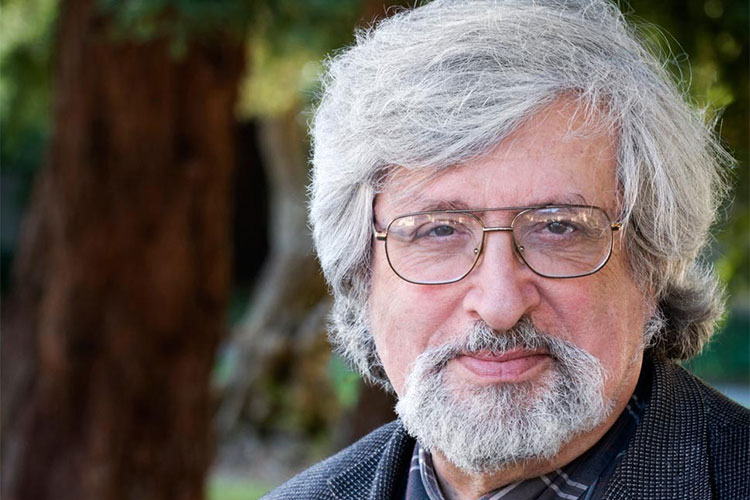Music professor wins prestigious Kyoto Prize
Richard Taruskin is lauded for a lifetime of contributions to musicology

June 20, 2017
Richard Taruskin, a UC Berkeley emeritus professor of music, has won a 2017 Kyoto Prize for his contributions to the study, performance and critical discourse of early music, modern Russian music and Western music history.
The award, issued by the Inamori Foundation, is given annually to people in the fields of arts and philosophy, basic sciences and advanced technology who have contributed significantly to “the scientific, cultural and spiritual betterment of mankind.” It is considered the most prestigious honor available for those in fields not typically honored with the Nobel Prize.
“His deep knowledge of such diverse fields as history, culture, politics, art, literature and religion allows him to make an incisive analysis of the literate tradition of Western music in the sociocultural context,” the prize announcement said about Taruskin.

Professor emeritus Richard Taruskin
“His critical practices and deep academic insights have changed music as we know it, pioneering a new realm of music research which can go beyond the boundary between conventional criticism and musicology, and between historical musicology and ethnomusicology,” it continued.
Others from the music field who have won the Kyoto Prize include contemporary new music composer John Cage and innovative jazz musician Cecil Taylor, both of the United States. One other UC Berkeley professor has won the prize — computer theorist Richard Karp picked up the award in 2008 in the advanced technology category.
Cindy Cox, chair of UC Berkeley’s music department, said she and his other colleagues are delighted with the news about the Kyoto Prize.
“His distinguished career covers enormous ground, with a particular emphasis on the Russian tradition and the music of Stravinsky,” she said. “As a music critic he is well known to the public through his essays for the New York Times and The New Republic. His writings overturn previously accepted ideas in sometimes highly charged and controversial ways, perhaps best illustrated in his multi-volume Oxford History of Western Music, a masterful rendering of the entire history of Western classical music.”
The Kyoto Prize announcement cited Taruskin’s writings in the 1980s for the New York Times and other newspapers and academic journals, where he argued that contemporary performances of early music actually reflected late 20th century aesthetics.
Taruskin, who studied Russian language at Columbia University before entering its graduate school of musicology, “has left an even larger mark in the music world through his Russian music research,” as evidenced in a series of books about Russian music and composers, according to the announcement.
Prize officials called Taruskin’s six-volume, 4,000-plus-page Oxford History of Western Music, which examined the whole of European musical history, a “literary landmark” in musicology.
Taruskin will receive the prize during ceremonies in Japan in November. The honor includes an award of about $448,500 and a medal made of 20-karat gold and embedded with four emeralds and four rubies.
Taruskin joined the Berkeley music faculty in 1986. He earned his bachelor’s, master’s and doctoral degrees at Columbia. He was a member of the music faculty there and also worked as a choral conductor and played viola da gamba with the well-known Aulos Ensemble. He retired from UC Berkeley in 2014.
Other awards received by Taruskin include the Greenberg Prize in 1978, the Alfred Einstein Award in 1980, the Dent Medal in 1987 and the Kinkeldey Prize in 1997. He is a member of the American Philosophical Society.